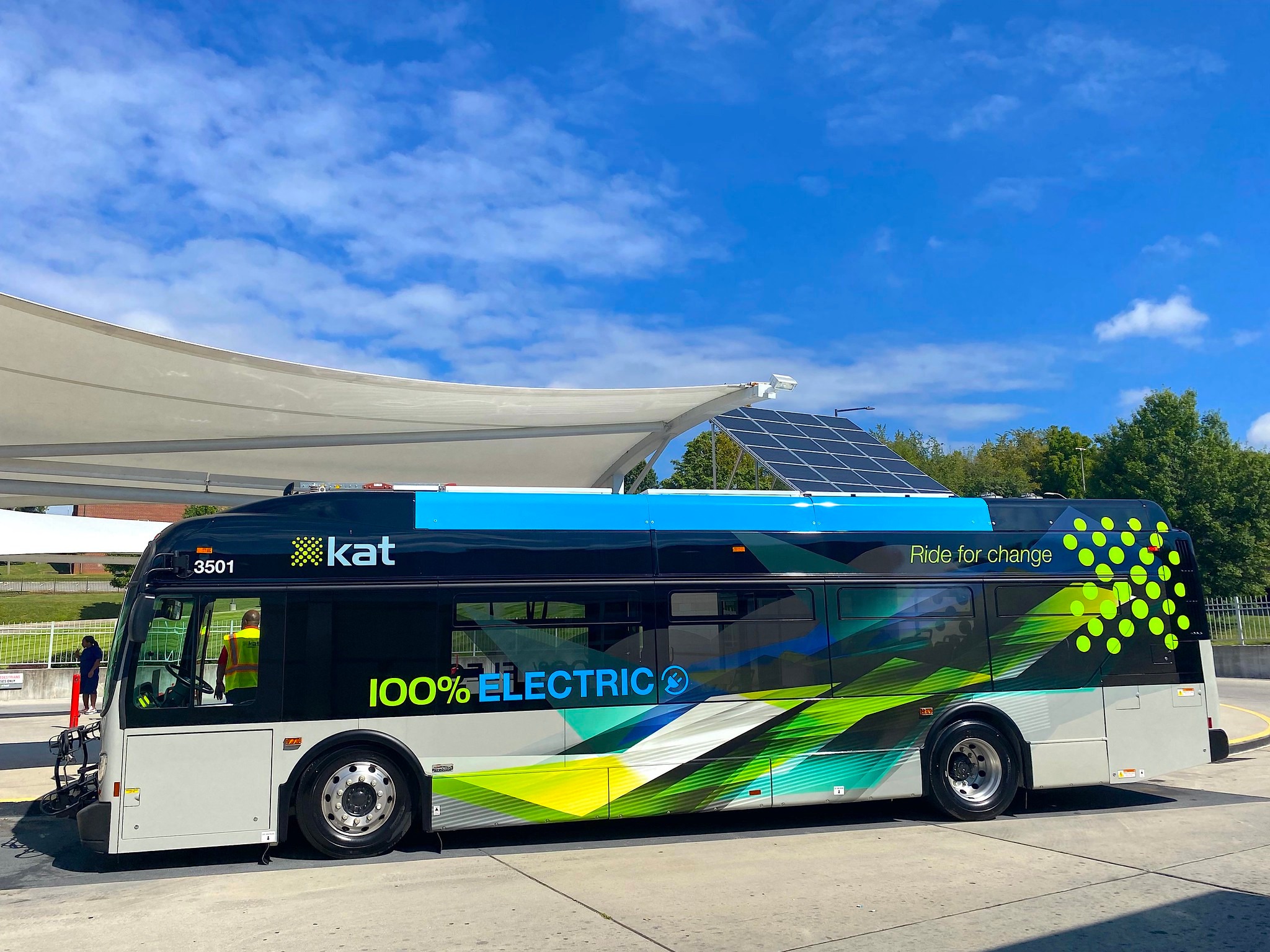Air (50)
Carson-Newman professor hosts installment of worldwide “Climate Teach-in”
Written by Thomas Fraser
Local installment of worldwide virtual Climate Teach-In is set for 2:30 p.m. March 30
JEFFERSON CITY — Brian Sohn had “the closest thing to a panic attack” when his second daughter was born.
He had long been alarmed by climate change and its potentially disastrous effects, but her arrival brought home the need to address the environmental challenges of a rapidly changing planet.
So now the Carson-Newman University education professor is putting some final touches on a virtual climate-related “teach-in” he’ll host from 2:30 to 3:30 p.m. Wednesday, March 30.
It’s Sirius: Light pollution blots out the night sky but pockets of true darkness remain
Written by Rick Vaughan The Southeast is seen at night from the International Space Station. NASA
The Southeast is seen at night from the International Space Station. NASA
Dark Sky parks, including some in East Tennessee, offer true views of heaven
“Look up at the sky. There is a light, a beauty up there, that no shadow can touch.” J. R. R. Tolkien
WARTBURG — Those who came before us read the night sky like we read maps today.
In ancient times, pointing to the stars, they imagined creatures, mythological heroes and common every-day objects. Because of their fixed positions, the constellations became a foolproof way to navigate across vast, featureless deserts and expansive seas. The stars marked the changing seasons and the passage of time. The star patterns were memorized and taught to each new generation.
- light pollution
- obed river
- pickett state park
- dark sky park
- dark sky
- astronomy in southeast
- what is light pollution
- sky meadow
- tennessee state park
- stargazing in tennessee
- appalachian dark sky
- where is best place to see stars near knoxville?
- rick vaughan
- see the milky way
- constellation
- southeast at night
- why can't i see stars in the city
- international dark sky park
- bortle scale
Knoxville Area Transit navigates length, depth and breadth
Written by Cittlali Onate With their zero-emission drive, these quiet buses operate with 100% electric propulsion. Each electric bus helps prevent nearly 300,000 pounds of greenhouse gas emissions in our community annually. That’s like planting 2,283 trees.
With their zero-emission drive, these quiet buses operate with 100% electric propulsion. Each electric bus helps prevent nearly 300,000 pounds of greenhouse gas emissions in our community annually. That’s like planting 2,283 trees. Knoxville Area Transit
Shut up and get on the bus
KNOXVILLE — Everyone needs to be everywhere at once: School, work, the grocery story, the mall and back home.
Locked into a society run by time, we tend to prefer methods of transportation that make for the quickest journey from place to place.
The modern car, usually powered by gasoline, provides individuals with quick transportation, which saves time. Private transportation embodies convenience.
- knoxville area transit
- public transportation in knoxville
- ut environmental writing class
- kat
- why don't people use public transit
- should i take the bus
- environmental damage from vehicle
- greenhouse gas emission
- belinda woodiel brill
- environmental advantages to taking the bus
- why should i take bus in knoxville
- co2
- carbon dioxide
- electric bus
Get involved: Protestors lock arms to demand TVA swear off fossil fuels for good
Written by Thomas Fraser Protestors chant and wave signs urging TVA to commit to a fossil fuel-free future during a protest in downtown Knoxville this summer. Courtesy Amy Rawe/Southern Alliance for Clean Energy
Protestors chant and wave signs urging TVA to commit to a fossil fuel-free future during a protest in downtown Knoxville this summer. Courtesy Amy Rawe/Southern Alliance for Clean Energy
Activists will demand TVA allow public comments during a protest planned for Wednesday morning outside TVA HQ in downtown Knoxville
Knoxville clean-air activists plan another protest Wednesday outside of Tennessee Valley Authority headquarters to demand a return to public-comment periods and a commitment the huge utility won’t rely on fossil-fuel energy sources in the future.
“Public input is critical right now, while TVA is considering building new, large fossil gas power plants and pipelines, even though they would be contrary to our need to cut greenhouse gas emissions in half by 2030,” said protest organizer Brady Watson of Southern Alliance for Clean Energy. Statewide Organizing for Community Empowerment is also coordinating the protest.
Clean-energy advocates take demands to base of TVA towers and power
Written by Thomas Fraser Alex Pulsipher holds a sign demanding that TVA transition to 100 percent renewable energy at a rally Wednesday in Market Square in Knoxville. Courtesy Amy Rawe/Southern Alliance for Clean Energy
Alex Pulsipher holds a sign demanding that TVA transition to 100 percent renewable energy at a rally Wednesday in Market Square in Knoxville. Courtesy Amy Rawe/Southern Alliance for Clean Energy
Varied environmental groups offer unified plea for clean energy, coal ash management and accountability from TVA
It was people power generating energy at Market Square in downtown Knoxville on Wednesday.
A coalition of civic and environmental groups and their representatives met at the bottom of the two Tennessee Valley Authority towers urging the public utility to reopen meetings to public comment; swear off all fossil fuels by 2030; and carefully tend to the needs of those affected by coal ash and devise a plan to contain it for the safety of current and future generations.
- tva clean energy
- coal ash
- kingston coal ash spill
- southern alliance for clean energy
- kingston coal ash worker
- tva coal ash
- sunrise movement
- appalachian voices
- sierra club
- tennessee valley authority
- accountability
- public comment
- tva board meeting
- carbon reduction
- climate action
- carbon free by 2030
- renewable energy
100 citizens attend ‘People’s Hearing’ on TVA and demand more accountability, transparency
Written by Rick HerronAttendees raise concerns about coal ash; call for more clean energy, transparency and public engagement from TVA
Nearly 100 people from Tennessee and other states served by the Tennessee Valley Authority joined a virtual People’s TVA Hearing. The hearing on Aug. 4 was organized by the Tennessee Valley Energy Democracy Movement (TVEDM). It included a public comment session and multiple breakout sessions for attendees to discuss specific issues facing TVA and the Tennessee Valley.
TVA has not held any public listening sessions in a year and a half because of the Covid-19 pandemic, and attendees called on TVA to resume such sessions as soon as possible when the pandemic ebbs.
“TVA talks a good game about being public power but they are simply not walking the walk,” said Barbara Mott of Knoxville. “Hiding from the people is not the answer.”
In historic move, Tennessee Valley Authority finally swears off coal; are power replacements up in the air?
Written by Thomas Fraser
“Our intelligence and flexibility as a society will be tested as the financial and industrial giants all figure out what they’re going to do.”
The Tennessee Valley Authority intends to phase out its aging fleet of coal plants by 2035, potentially replacing the age-old carbon-rich power source with increased use of natural gas and refreshed, concentrated supplies of nuclear energy as the vast utility moves to drastically reduce its greenhouse gas emissions.
The plan emerged Wednesday, about a month after the Biden administration called on the U.S. power sector to eliminate pollutants linked to climate change by 2035.
The Tennessee Valley Authority is the largest public provider of electricity in the United States. It provides wholesale power to every major municipal provider in Tennessee, as well as other metropolitan areas and smaller utility districts and cooperatives within its seven-state service area.
How we saved the birds that carry the sky on their backs
Written by Stephen Lyn Bales
One man’s initial efforts led to the bluebird’s recovery
Eastern bluebirds have long been cherished.
Henry David Thoreau was this country’s first widely regarded and, perhaps, foremost nature writer. He rigorously kept a journal, recording the happenings around his home in Concord, Massachusetts. On April 26, 1838 he scribed a poem that began, “In the midst of the poplar that stands by our door, we planted a bluebird box, and we hoped before summer was o’er, a transient pair to coax.”
Thoreau ended the long entry with the lines, “The bluebird had come from the distant South, to his box in the poplar tree, and he opened wide his slender mouth, on purpose to sing to me.”
It has now been 183 years since the master of Walden waxed poetic about Eastern bluebirds, but his words seem just as appropriate today as they were then because people still love the birds that “carry the sky on their backs” and a song in their hearts.
The coal plant next door: The sad and long legacy of coal ash in Georgia
Written by ProPublicaThis story from ProPublica is shared via Hellbender Press under a Creative Commons license. Click here for the entire ProPublica story, including illustrations and photos.
By Max Blau for Georgia Health News
ProPublica is a Pulitzer Prize-winning investigative newsroom. Sign up for The Big Story newsletter to receive stories like this one in your inbox.
Mark Berry raised his right hand, pledging to tell the whole truth and nothing but the truth. The bespectacled mechanical engineer took his seat inside the cherry-wood witness stand. He pulled his microphone close to his yellow bow tie and glanced left toward five of Georgia’s most influential elected officials. As one of Georgia Power’s top environmental lobbyists, Berry had a clear mission on that rainy day in April 2019: Convince those five energy regulators that the company’s customers should foot the bill for one of the most expensive toxic waste cleanup efforts in state history.
- coal ash
- cleanup
- georgia power
- kingston coal ash spill
- toxic waste
- mark berry
- energy regulator
- public service commission
- coal ash pond
- disinformation
- eminent domain
- radioactive coal ash
- electric utility
- trace metal
- cancer risk
- drinking water contamination
- human health hazard
- leaching
- groundwater
- water well
- erin brockovich
- chronic illness
- heavy metal
- plant scherer
- propublica
- lobbyist
- hexavalent chromium
- cancer cluster
The days the Earth stood still (Part 1): Covid cleared the air in the lonely Smokies
Written by Thomas Fraser Great Smoky Mountains National Park Air Resource Specialist is seen at the Look Rock air quality research station. Courtesy National Park Service
Great Smoky Mountains National Park Air Resource Specialist is seen at the Look Rock air quality research station. Courtesy National Park ServiceThe lack of regional and local vehicle traffic during the pandemic greatly reduced measurable pollution in Great Smoky Mountains National Park.
This is your Hellbender weekend read, and the first in an occasional Hellbender Press series about the effects of the Covid-19 pandemic on the natural world
Great Smoky Mountains National Park shut down for six weeks in 2020 during the Covid-19 pandemic. Recorded emissions reductions during that period in part illustrate the role motor vehicles play in the park's vexing air-quality issues. The full cascade of effects from the pollution reductions are still being studied.
Hellbender Press interviewed park air quality specialist Jim Renfro about the marked reduction of carbon dioxide and other pollutants documented during the park closure during the pandemic, and the special scientific opportunities it presents. He responded to the following questions via email.
Hellbender Press: You cited “several hundred tons" in pollutant reductions during an interview with WBIR of Knoxville (in 2020). What types of air pollutants does this figure include?
- great smoky mountains national park
- coronavirus
- smokies
- pandemic
- air pollution
- covid19
- air quality
- shutdown
- pollutant reduction
- carbon dioxide
- co2
- motor vehicle
- jim renfro
- nox
- voc
- improvement
- haze
- ozone
- look rock
- emission
- greenhouse gas
- visitation
- visitor
- traffic volume
- analysis
- monitoring station
- particulate matter
- mercury
- acid deposition
- quality control
- quality assurance
- so2 regional haze rule
- national park service
- nps
- air resource specialist
- ecosystem
- bioaccumulation
- so2
- road closure
- power plant
- epa
- environmental protection agency
KUB commits to solar power — and a controversial long-term relationship with TVA
Written by Tracy Haun Owens
Last year, Knoxville Utilities Board committed to supplying 20 percent of its electricity through solar generation by 2023, through Tennessee Valley Authority’s (TVA) Green Invest program. By 2023, KUB will provide 502 megawatts annually of new-to-the-grid solar power to its customers. This represents the equivalent of enough energy to power 83,000 homes. The $1.63 million cost will be paid by a credit provided by TVA as part of its 20-year partnership agreement with KUB.
The announcement was celebrated by solar energy advocates, including the Tennessee Solar Energy Industries Association, but some environmental watchdogs maintain there are issues with the contracts that local power companies had to enter into with TVA to participate in Green Invest.
Counting birds and taking names at Seven Islands
Written by Thomas Fraser
Tina Brouwer, left, and Ranger Clare Dattilo look for birds Jan. 3 at Seven Islands State Birding Park. Thomas Fraser/Hellbender Press
Dozens join annual avian survey at Seven Islands State Birding Park
KODAK, TN — State park interpretive ranger Clare Dattilo led the group slowly but surely across the muddy winter landscape of Seven Islands State Birding Park, taking note of birdsong and investigating undulating flashes of quick color against the backdrop of green cedars and nude tree branches and grasses flattened by the weight of a recent snow.
Even in the dead of winter, woods and fields are filled with life.
The birding park hosted both trained ornithologists and casual birdwatchers to scope out species to include in the annual Audubon Society Christmas bird count. Dattilo was tallying her numbers with a couple of journalists and a long-time friend from college.
Bluff Mountain loomed to the east. The crest of the Smokies, in commanding view on clear days, was shrouded in freezing fog. Ring-billed seagulls flew high overhead while a couple of Carolina wrens chirped in the underbrush.
Bursts of bluebirds and cardinals yielded glimpses of color. Flycatchers and downy woodpeckers concentrated on their rhythmic work amidst the barren winter branches of the huge oaks, hickories and maples that spread across the ridges of the park and into its small hollows. White-tailed deer browsed silently, undeterred and seemingly and correctly unbothered by the birdwatchers.